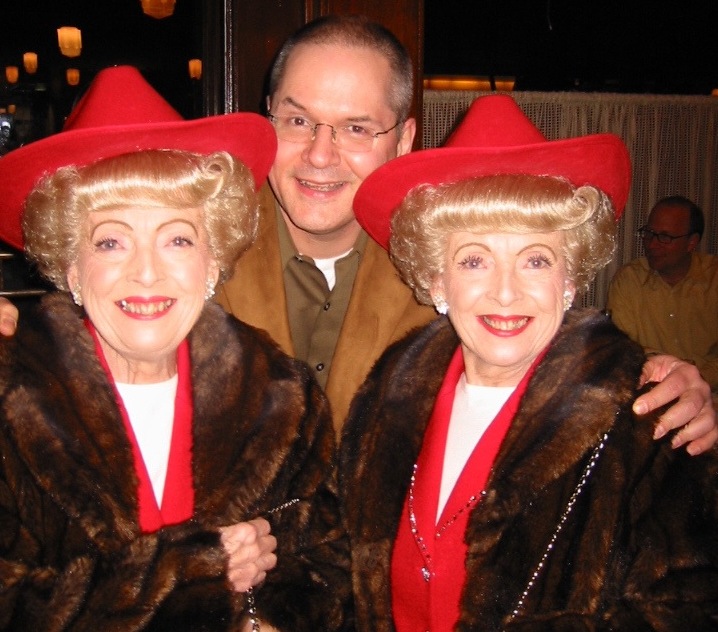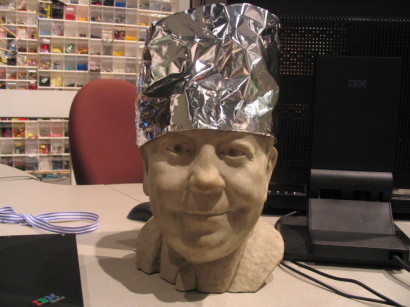Dr. S got a job-related subscription to
Rolling Stone this past summer (and no, it wouldn't have occurred to me to subscribe to that industry rag on my own). I had expected to greet the arrival of my first issue with the level of enthusiasm normally reserved for, say, an oily copy of
People Magazine left on a subway seat. This expectation was pleasantly dashed when I saw in my mailbox RS's tribute issue to the good Dr. Thompson. I couldn't bear the thought of tossing that gorgeous cover shot of the Godfather of Gonzo onto the compost heap, so I started reading.
Ever since, I've been dumbstruck by (um, technically, raving about) RS's political coverage. The rest of the magazine is shit, but the investigative depth, quality of writing, and political savvy of these articles put to shame the dreary screeds that fill most of the pages of, say,
The Nation or Slate. Which is to say: Gonzo lives!
What's that, you say? Skeptical? Dr. S says: you be the judge. Here's an excerpt from the penultimate issue, an article on the Lynndie England verdict.
The Abu Ghraib scandal hit America like the worst kind of surprise, like a long-dreaded psychosexual nightmare or closet phobia thrust suddenly into the open -- like being caught in the office after hours jerking off to twink porn, or having to call an ambulance to get the proverbial frozen hot dog out of your snatch. This was the worst-case scenario come true, the gerbil-in-the-ass story -- only it wasn't apocryphal at all, but cross-confirmed by a hundred sources in every newspaper and on every cable channel on earth.At the center of the scandal was the discovery and release of scads of digital photos documenting the deeply twisted and oddly imaginative schemes of abuse of Iraqi prisoners by a squad of grinning hicks from the Army's 372nd Military Police Company. The two images that stuck most firmly in the public consciousness were the human pyramid of naked detainees and a beaming tomboy private named Lynndie England standing with a cigarette dangling out of her mouth, smugly pointing at the exposed balls of a naked Iraqi prisoner.
The pictures meant different things to different people, but their meaning was most clear to the Muslim world. Nothing could have been more horrible than the sight of a "liberated" American female -- a frighteningly ugly beast with short hair, pants and boots, not to mention a gun -- forcing Muslim men to play the bottom role in smarmy leash-and-whip S&M scenes.
As a compendium of cultural insults, this was unmatched in its offensiveness, a sort of perfect storm of bad PR. An equivalent response might have included a gang of sheiks putting a leash on the neck of the Virgin Mary and leading her to be violated by a camel . . . but even that, perhaps, wouldn't have inspired the outrage Lynndie England elicited in Mohammedan lands.
Non-Muslim foreigners saw in Lynndie another American prototype. With her "Get a load of me!" poses and her mania for picture-taking, Lynndie reminded the whole world of the American tourist who stands holding a Schlitz in front of the Sistine Chapel. This was a new low, but also a sort of supreme achievement in Ugly Americanism: I COMMITED LOTS OF WAR CRIMES IN IRAQ AND ALL I GOT WAS THIS LOUSY T-SHIRT!
At home, Abu Ghraib in very short order turned into a comic pissing match between two sides dedicated to missing the point. The right spent months insisting that a human pyramid wasn't nearly as bad as a beheading, while the left just ate the news up without really knowing why. Both argued fiercely for half a year about how much play the pictures should get in the news and soon after forgot about them completely. In short, it was a textbook example of an American dialogue about a vital national problem.
[...]
Why was Lynndie smiling in those pictures? Ask her expert witness! "American culture places a great emphasis on smiling," pronounced Dr. Stjepan Mestrovic, one of the experts the defense called to the stand. The renowned sociologist is a gloomy-looking foreigner, all droopy eyes and bulbous nose, who for a week has made no attempt to hide the fact that he considers almost everyone on this Army base [Fort Hood in Texas] a barbarian.
"People here are forever smiling in pictures, they are saying the cheese," he goes on. "They see people smiling on the covers of magazines, on television shows. There is pressure always to be smiling . . . Put simply, Americans are smilers!"
The doctor folds his arms, thinking he has said something significant about Lynndie England's famous grin. He has, of course, but what he's mistaken about is in thinking anyone here gives a damn.
The court-martial of Lynndie England early on evolved into a kind of low-rent comic allegory about the American political scene, and Mestrovic played the role of the pointy-headed liberal who is too busy being right to see what a pain in the ass he is.
Read on!







